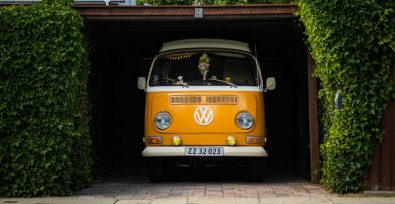In the midst of mounting concerns surrounding forced labor in China’s Uyghur Region, German automaker Volkswagen once again finds itself embroiled in controversy over its operations in the region. Recent reports suggest that forced labor may have been utilized in the construction of the company’s test track in the Uyghur Region under the joint venture with its Chinese partner SAIC.
Volkswagen ignored all the forced labor red flags
German media broke the news of evidence, including photographs, of Uyghur workers involved in coercive labor programs working on the track which was completed back in 2019. The photos were discovered by an independent researcher but apparently overlooked by auditing firm Loening GmbH which recently concluded an investigation into Volkswagen’s joint venture in the Uyghur Region and gave the company a clean bill of health.
Despite warnings from Freedom United and other advocacy groups that an audit might not yield accurate findings in a situation of state-imposed forced labor, Volkswagen proceeded rather than do what the global community has been asking of all companies: cut ties with the Uyghur Region.
This new finding not only casts doubt on the credibility of the audit’s conclusions but also raises broader questions about the company’s stance on forced labor.
Volkswagen “no longer investible”
Volkswagen’s reputation now hangs in the balance.
Victoria Waldersee for Reuters reports,
Stephan Weil, the premier of the German state of Lower Saxony – Volkswagen’s second-biggest shareholder – called the reports “concerning”, adding his government supported reviewing different scenarios for the business.
German fund manager Union Investment said the latest news meant Volkswagen no longer qualified for investment from its sustainable funds.
“Today’s allegations have a new dimension. With that, Volkswagen is no longer investible for our sustainable funds,” Union Investment’s Janne Werning said in a written statement.
Cutting ties with forced labor
Volkswagen is reportedly now “reviewing” its joint venture in China – too late, too late some say. The company would do well to follow in the footsteps of fellow German chemical manufacturer, BASF, which announced last week that it was divesting its shares in two joint ventures operating in the Uyghur Region over reports of “activities inconsistent with BASF’s values.”
In reality, BASF received significant pressure from international policymakers after reports linked the company’s joint ventures in the Uyghur Region to the forced labor system.
It’s clear that waiting for companies to do the right thing on their own is futile. We must continue to push and demand change until their tolerance buckles under the pressure.







Freedom United is interested in hearing from our community and welcomes relevant, informed comments, advice, and insights that advance the conversation around our campaigns and advocacy. We value inclusivity and respect within our community. To be approved, your comments should be civil.
Hi Tori, thanks for the message and your support! Yes, you can sign the petition for car companies, including Volkswagen, here: https://www.freedomunited.org/advocate/free-uyghurs-cars/. Thanks!
The action items links to a petition to fashion brands? I have already signed this but is there another petition for Volkswagen?
If true, we need to organize a boycott of VW car purchases in the West
I have never purchased a Volkswagen and I am glad of that. There is really a problem with all vehicles. Take public transportation instead!